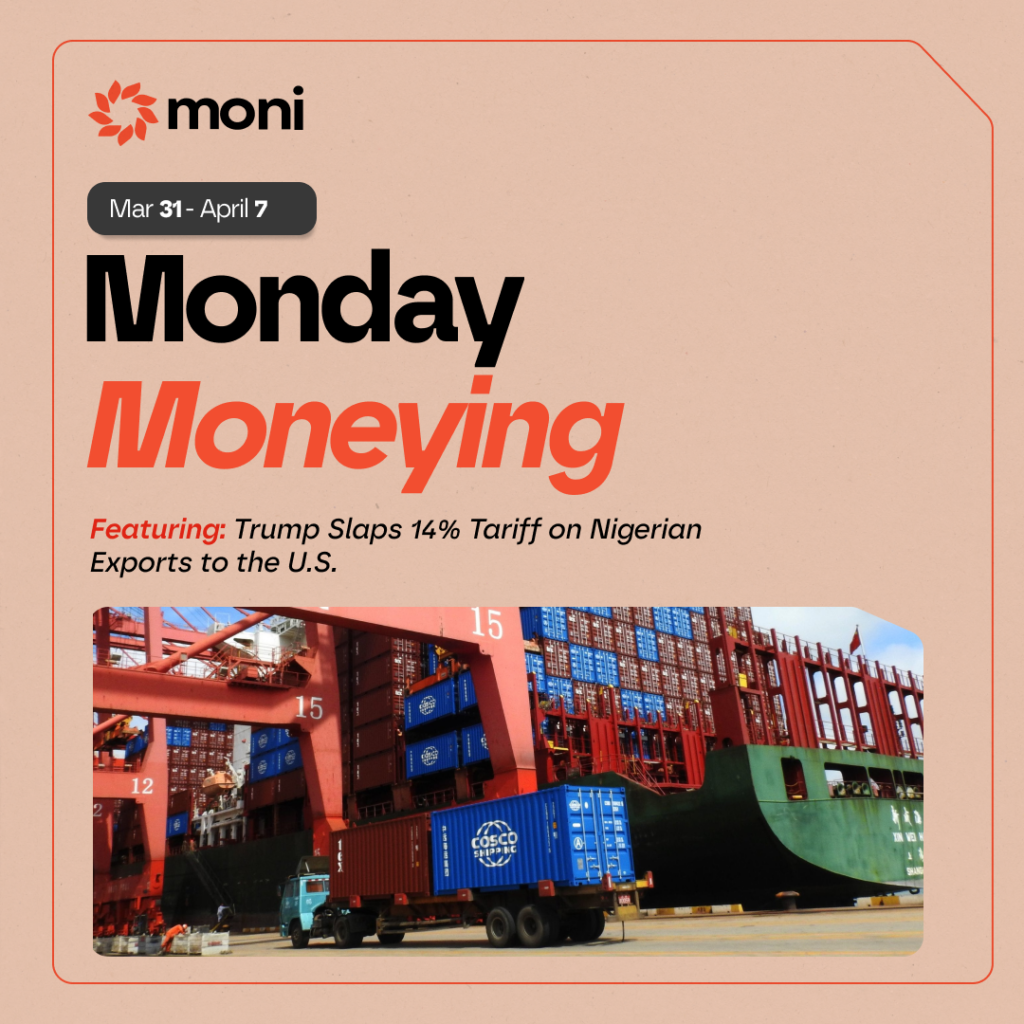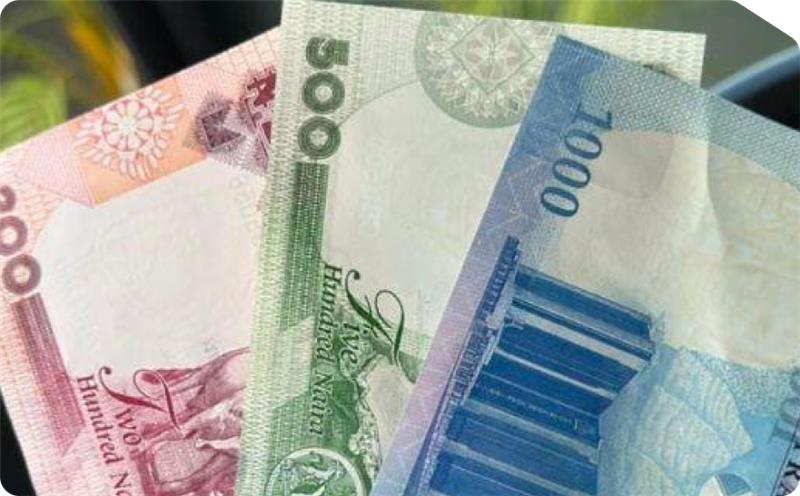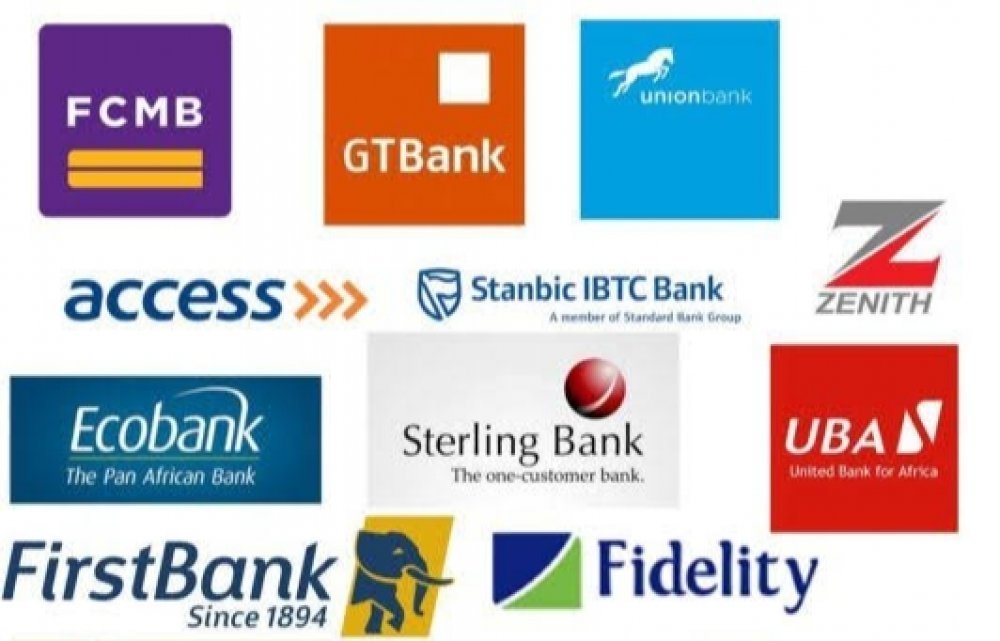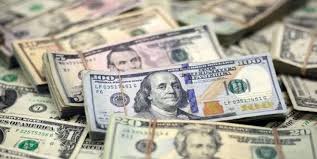
Welcome to Monday Moneying, a rundown of the biggest financial stories shaping Nigeria, delivered straight to your inbox every Monday Morning.
In this week’s episode…
Nigeria’s External Debt Hits N66.14 Trillion in Q3 2024, 23.14% of GDP

The Rundown
Nigeria’s external debt reached ₦66.14 trillion ($43.03 billion) in Q3 2024, marking a 0.30% increase from the previous quarter and a 3.40% rise year-on-year, according to the Central Bank of Nigeria’s latest Economic Report. CBN report shows external debt rises 3.4% YoY, with Eurobonds and multilateral loans accounting for most of the burden.
Key Debt Breakdown
- Multilateral Loans: $21.77 billion (50.60%)
- Eurobonds (Commercial): $15.12 billion (35.14%)
- Bilateral Loans: $5.81 billion (13.50%)
- Syndicated Loans: $0.33 billion (0.76%)
Debt Servicing in Q3 2024
- Total Paid: $1.34 billion
- Principal: $0.72 billion (53.73%)
- Interest: $0.62 billion (46.27%)
- Commercial Loans: $0.44 billion (70.96% of interest)
- Multilateral Loans: $0.12 billion (19.35%)
Why It Matters
Nigeria’s growing reliance on foreign loans underscores ongoing fiscal pressure and rising development costs. Experts warn that the increasing share of commercial debt could strain future repayment capacity, calling for debt restructuring, improved revenue generation, and disciplined spending to avoid long-term risks.
Nigerian Banks Rake in Record Profits in 2024

Despite a tough economic environment and tighter monetary policies, Nigeria’s leading banks recorded their highest-ever post-tax profits in 2024, fueled largely by interest income from loans and investments, strong customer deposits, and solid risk management.
Here’s how the major banks performed:
Zenith Bank Plc
- Profit After Tax: ₦1.03 trillion: Zenith Bank made history by becoming the first Nigerian bank to report over ₦1 trillion in net profit, up 52.5% from the previous year. This was driven by strong interest income, cost control, and steady customer growth.
UBA Plc
- Profit After Tax: ₦766.5 billion: UBA posted its highest profit ever, rising 26.14% year-on-year. This strong showing reflects the bank’s consistent performance and ability to scale its core banking operations.
Fidelity Bank Plc
- Profit After Tax: ₦278.1 billion: Fidelity Bank’s profit surged by 179.6%, despite a ₦13.3 billion windfall tax. Growth came from interest income and a reduction in credit losses, allowing it to boost dividend payouts to shareholders.
Stanbic IBTC Holdings
- Profit After Tax: ₦225.3 billion: Stanbic’s profit grew 60.23%, supported by gains in interest income and fee-based services, even though the bank saw a sharp rise in credit impairment charges.
FCMB Group Plc
- Profit After Tax: Not explicitly stated, but pre-tax profit was ₦111.8 billion. FCMB recorded a 7.15% increase in pre-tax profit, with strong earnings from loans and investments contributing significantly to its bottom line.
Wema Bank Plc
- Profit After Tax: Not explicitly stated, but pre-tax profit was ₦102.5 billion. Wema had its best year in at least five years, with profits driven by loan growth, investment income, and a smart play on rising interest rates.
Nigeria’s Net FX Reserves Hit $23.11 Billion – Highest in Over 3 Years

The Rundown
The Central Bank of Nigeria (CBN) has disclosed that the country’s Net Foreign Exchange Reserves (NFER) rose sharply to $23.11 billion at the end of 2024 — the highest level since 2020. This is a major leap from $3.99 billion in 2023. Gross reserves also increased to $40.19 billion, reflecting stronger FX inflows, reduced liabilities, and policy reforms.
The Details
The NFER rose from:
- $3.99 billion in 2023
- $8.19 billion in 2022
- $14.59 billion in 2021
- To $23.11 billion in 2024
Gross External Reserves also climbed to $40.19 billion, up from $33.22 billion in 2023. The Net FX Reserve is a more realistic figure than gross reserves because it accounts for short-term obligations like FX swaps and forward contracts — giving a clearer picture of what’s actually available. Why the rise? The CBN credited three major factors:
- Cutting down FX liabilities – Reduced swaps and forward contracts.
- More non-oil FX inflows – Stronger export performance outside oil.
- Policy reforms – Confidence-building measures in the FX market.
New Law: SEC Can Now Jail Ponzi Scheme Operators for 10 Years

The Rundown
The Director-General of the Securities and Exchange Commission (SEC), Mr. Emomotimi Agama, says the newly signed Investment and Securities Act (ISA) 2025 gives the Commission power to prosecute Ponzi scheme operators with a minimum sentence of 10 years in prison. The new law also imposes a ₦40 million fine and allows the SEC to recover stolen funds and access communication records to aid investigations.
The Details
Before now, the SEC had no legal authority to prosecute Ponzi scheme promoters. With ISA 2025, offenders can now face:
- At least 10 years imprisonment
- A ₦40 million penalty
- Disgorgement of profits — all illegally made money will be recovered
Additionally, the SEC:
- Can now access telephone conversations and other communication data for investigations
- Can now track, prosecute, and bring Ponzi promoters to justice more efficiently
- Will help restore investor confidence and protect Nigerians
Trump Slaps 14% Tariff on Nigerian Exports to the U.S.

The Rundown
Former U.S. President Donald Trump has imposed a 14% tariff on Nigerian exports to the United States, as part of a broader move to introduce baseline and reciprocal tariffs on over 50 countries. The decision is aimed at pushing what Trump calls “fair trade”, and takes immediate effect.
The Details
- A 10% baseline tariff will now apply to all U.S. imports globally.
- Countries that impose higher duties on U.S. goods—like Nigeria—will face reciprocal tariffs.
- For Nigeria, this means a 14% tariff on its exports to the U.S., in response to what the U.S. claims is a 27% tariff it faces from Nigeria.
- Between 2015 and 2024, Nigeria’s trade with the U.S. totaled N31.1 trillion.
- Nigerian exports to the U.S. amounted to N16.4 trillion, accounting for 8.7% of Nigeria’s global exports, according to the National Bureau of Statistics.
- Speaking at a Rose Garden event titled “Liberation Day,” Trump called it “one of the most important days in American history.”
- He emphasized the goal to revive the U.S. industrial base and eliminate trade barriers blocking American goods.
- The tariffs apply to over 50 countries, including: China,The European Union, India, Japan, Various developing nations in Africa, Asia, and Latin America
CBN Disowns Viral Circular on N5,000 and N10,000 Banknotes

The Rundown
The Central Bank of Nigeria (CBN) has debunked claims that it plans to introduce N5,000 and N10,000 notes into circulation from May 1.
The false information was spread via WhatsApp, but the CBN has categorically denied the claim, labeling the circular as fake.
The Details
The fake circular:
- Alleged that the CBN would release two new denominations to streamline cash transactions.
- Claimed the move was to cut cash-handling costs and improve liquidity.
- Falsely cited a Deputy CBN Governor, Dr. Ibrahim Tahir Jr., as the source.
- The CBN took to X (formerly Twitter) to disown the message.
- Clarified: “The content is not from the Central Bank of Nigeria.”
- Urged Nigerians to always verify announcements via the official CBN website: cbn.gov.ng.
Nigeria Officially Recognizes Crypto as Securities Under New Law

The Rundown
Nigeria has formally recognized cryptocurrency and virtual assets as securities for the first time, following the signing of the Investment and Securities Act (ISA) 2025 by President Bola Tinubu. The move places crypto platforms under the regulatory oversight of the Securities and Exchange Commission (SEC) and brings much-needed clarity to the country’s digital asset space.
The Details
- The ISA 2025 officially classifies virtual assets, digital assets, and investment contracts as securities.
- This includes Virtual Asset Service Providers (VASPs), Digital Asset Operators (DAOPs), and Digital Asset Exchanges, all of which are now under SEC regulation.
- Section C, page 188 of the ISA defines securities exchanges as platforms for trading both traditional and digital assets.
- The ISA 2025 Ends over a decade of regulatory uncertainty around crypto in Nigeria.
- Aims to improve investor protection, enforce accountability, and reduce abuse in the fast-growing digital asset sector.
Crypto is big in Nigeria:
- Nigeria is the second-highest country globally in crypto adoption, behind India, according to Chainalysis.
- Between July 2023 and June 2024, Sub-Saharan Africa received $125 billion in crypto value, with Nigeria leading in small transaction volumes.
- Stablecoins accounted for 43% of all transactions in the region.
What’s next
- The ISA 2025 sets a foundation for international-standard crypto regulation.
- It also supports economic diversification and capital market development by formally recognizing digital assets as part of Nigeria’s financial system.



